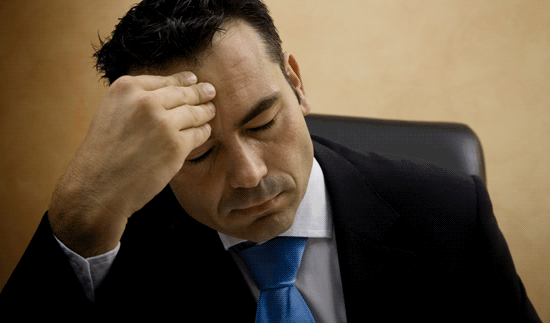
Practical advice for helping those reeling from a moral failure.
helping the fallen
By Eddie E. Moody, Jr.
“For if they fall, the one will lift up his fellow: but woe to him that is alone when he falleth; for he hath not another to help him up” (Ecclesiastes 4:10).
As Christians today are painfully aware, many great people of God have fallen. Use the following principles to help those who have fallen or to prevent others from falling.
-
No one falls suddenly.
In reality, a moral fall is a gradual process. It begins in the mind with ungodly thoughts and a drifting away from God. Attitudes and priorities shift. One is not as concerned about the things of God as he or she once was (e.g., Bible reading, prayer, church attendance, fellowship with other Christians). This leads to “little sins,” behaviors previously avoided. Finally, the fall culminates with a “catastrophic” sin. The process of a fall underlies the importance of early intervention.
-
Pray.
Jesus instructed us to pray about temptation and being delivered from evil. The first line of defense against a fall is prayer. We need to pray regularly for our friends, family, and those in our church family.
-
Make Contact.
When we notice something different about a person, we need to point it out (You seem down, is everything okay?). Make contact with the person in some way (an email or text, a call, a card, or lunch).
Failure to intervene at this point can result in hardening and spiraling into sin. Unfortunately, with our busy lives we often fail to notice someone going astray at a point when it would be the easiest to bring them back.
-
Intervene. Someone entangled in sin loses the ability to think biblically and intervention is required. Jesus gave us a model for intervention in Matthew 18. Today, however, few are eager to engage in this vital activity.
We must ask ourselves what kind of friend are we if we fail to tell the truth. A real friend intervenes out of love for the friend, even if it risks the friendship.
-
How?
Galatians 6:1 tells us to confront with a spirit of meekness. When we confront with this spirit we are often very nervous (upset stomach and sweaty palms). If we think about our own sins and shortcomings we will be less likely to communicate a “better than you” attitude.
-
Now what?
The next step depends upon how the confrontation is received. Some people repent as David did when Nathan confronted him. Others are sorry they have been caught, much like Saul when confronted by Samuel. They may cry, but they have no intention of changing their behavior and following the Lord. How do you know the difference? In my experience, a truly repentant person is willing to do whatever is necessary to make something right. Freedom from entangling sins often requires a complete change in lifestyle (new friends, new location, new job).
Some will need the assistance of a professional Christian counselor. To find a professional in your area, go to www.FirstAidforEmotionalHurts.com and select Find a Christian Counselor.
For those who persist in business as usual, follow the Matthew 18 model. Involve others (friends and family) and confront them again. If that fails, involve church leadership and confront them again.
-
Be Confidential. Be as discreet as possible and keep this out of the public eye. Doing so enables the one who has fallen to have a better opportunity to recover. Also, remember the spouse, children, parents, and friends who may be impacted. Confidentiality reduces lasting damage. Once information is released, it can’t be brought back.
So much is at stake when someone falls. Heaven and hell hang in the balance. We must handle these issues carefully and properly using the biblical principles God has given us.
About the Writer: Dr. Edward Moody is an associate professor at North Carolina Central University. He holds a Ph.D. in counselor education. Dr. Moody is author of First Aid for Emotional Hurts and has published several articles in scholastic journals. He pastors Tippett's Chapel FWB Church in Clayton, NC.
|

